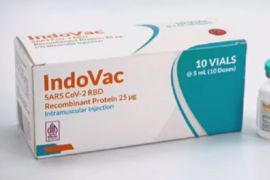"Scientific studies will continue to be developed in more in-depth and detailed methods to understand aspartame as a potential carcinogenic agent," said BPOM Head Penny K. Lukito after attending the South-East Asia Regulatory Network (SEARN) meeting in Jakarta on Wednesday.
She mentioned that the International Agency for Research on Cancer (IARC), an agency under the World Health Organization (WHO), classifies aspartame as group 2B, meaning it is possibly carcinogenic to humans. However, the evidence is still limited.
Moreover, the Joint WHO/FAO Expert Committee on Food Additives (JECFA) stated that the current use of aspartame in food is considered safe based on available evidence, and there is no sufficient reason to change the acceptable daily intake limit for aspartame, which is 40 milligrams per kilogram of body weight.
Referring to the Codex General Standard for Food Additives (GSFA), Lukito noted that regulations in Indonesia still permit the use of aspartame as a sweetener in processed food products.
"BPOM and other regulatory authorities still adhere to the Codex and established standards, which are part of the WHO guidelines for food standards," she remarked.
She said that her side had provided explanations to the public regarding the use of aspartame.
Until now, BPOM had not received any reports from producers or consumers regarding cancer being triggered by the use of aspartame, Lukito said.
On July 14, 2023, WHO presented an explanation regarding the health impact study of the artificial sweetener aspartame conducted by JECFA and IARC.
The presentation stated that IARC categorizes aspartame as group 2B, indicating a possibility of causing cancer in humans.
However, according to JECFA, the link between aspartame consumption and cancer in humans is not yet convincing and requires further study.
IARC and the WHO will conduct further research regarding the use of aspartame and its effects on human health.
Based on this, BPOM considers that it is not necessary to amend regulations regarding the use of aspartame in the manufacture of processed food products, Lukito stated.
However, BPOM will monitor further developments in studies regarding the safety of using aspartame by IARC and JECFA and oversee the circulation of processed food products in the market to ensure they are safe for the public, she remarked.
Related news: Sweetener aspartame consumption needs to be limited: Health Ministry
Related news: BPOM highlights drug compound contamination in Indonesian waters
Translator: Andi Firdaus, Resinta S
Editor: Anton Santoso
Copyright © ANTARA 2023












